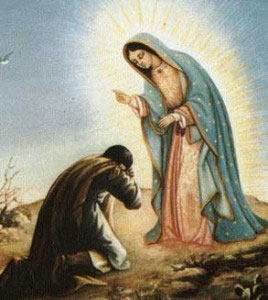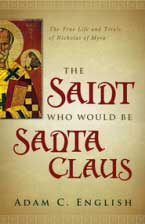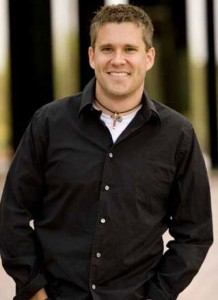[powerpress]
Please visit the Discerning Hearts Our Lady of Guadalupe page for the text and audio for the remaining days.
Virgin most wise, you chose a humble farmer to announce your motherly concern to the people of Mexico. Although Juan Diego felt unequal to the mission you gave him, you encouraged him to persevere. Faced with powerful anti-life forces today, we also feel unequal to the mission God has given us of building a culture of life and a civilization of love. Help us to persevere always in this great campaign for life, assured of your help and prayers. Our Father … Hail Mary … Glory be …
Tags: catholic, catholic podcast, catholic prayer, cathollc spirituality, humble farmer, juan diego
This entry was posted on Saturday, December 6th, 2014 at 5:04 am
You can follow any responses to this entry through the RSS 2.0 feed.
Dr. Adam English has done an outstanding job of bringing to life the story of St. Nicholas of Myra.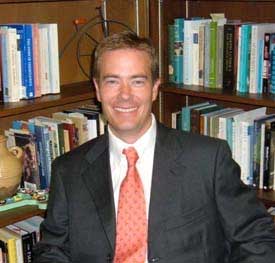  Going deep into the historical documents, he travails between the myths and the reality of this extraordinary bishop who would become an iconic saint.  I love this kind of read…steeped in rich history and filled with an enthusiastic joy for the adventure of discovery.
 Going deep into the historical documents, he travails between the myths and the reality of this extraordinary bishop who would become an iconic saint.  I love this kind of read…steeped in rich history and filled with an enthusiastic joy for the adventure of discovery.
[powerpress]
The book can be found here
“Adam English convinces us that the St. Nicholas we know is a cultural icon, as much Coca-Cola as Christian saint. But his real gift is in resurrecting through his painstaking historical detective work a flesh and blood St. Nicholas, whose courage and Christian generosity are worthy of emulation.”
–Greg Garrett, author of One Fine Potion“A sensitive, erudite, and accessibly written introduction to the life and times of St. Nicholas, a fourth-century bishop of Myra in what is now Turkey. Having devoted his life to serving Jesus Christ, the real St. Nicholas invites us to a truer and more joyful celebration of Christmas.”
–Matthew Levering, Professor of Theology, University of Dayton
This entry was posted on Saturday, December 6th, 2014 at 1:13 am
You can follow any responses to this entry through the RSS 2.0 feed.
[powerpress]
O God,
who by the Immaculate Conception
of the Blessed Virgin Mary,
did prepare a worthy dwelling place for Your Son,
we beseech You that,
as by the foreseen death of this, Your Son,
You did preserve Her from all stain,
so too You would permit us,
purified through Her intercession,
to come unto You.
Through the same Lord Jesus Christ,
Your Son, who lives and reigns with You
in the unity of the Holy Spirit,
God, world without end.
Amen.
O Most gracious Virgin Mary,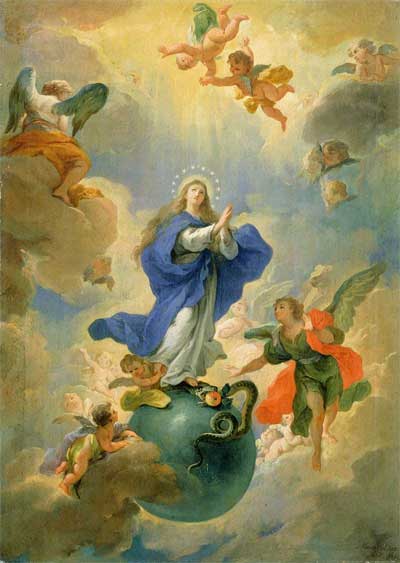
beloved Mother of Jesus Christ, our Redeemer,
intercede with him for us
that we be granted the favor which we petition
for so earnestly in this novena…
(State your intention here…)
O Mother of the Word Incarnate,
we feel animated with confidence
that your prayers in our behalf
will be graciously heard before the throne of God.
O Glorious Mother of God,
in memory of your joyous Immaculate Conception,
hear our prayers and obtain for us our petitions.
O Mary of the Immaculate Conception,
Mother of Christ,
you had influence with your Divine Son while upon this earth;
you have the same influence now in heaven.
Pray for us
and obtain for us from him
the granting of my petition if it be the Divine Will.
Amen.
For the complete 9 day novena visit the Discerning Hearts:
The Immaculate Conception Novena page
This entry was posted on Saturday, December 6th, 2014 at 12:43 am
You can follow any responses to this entry through the RSS 2.0 feed.
Msgr. Esseff leads the listener through a special Advent guided mediation based on the Scripture from Matthew.
[powerpress]
Gospel mt 9:27-31
“Son of David, have pity on us!â€
When he entered the house,
the blind men approached him and Jesus said to them,
“Do you believe that I can do this?â€
“Yes, Lord,†they said to him.
Then he touched their eyes and said,
“Let it be done for you according to your faith.â€
And their eyes were opened.
Jesus warned them sternly,
“See that no one knows about this.â€
But they went out and spread word of him through all that land.
This entry was posted on Friday, December 5th, 2014 at 12:47 pm
You can follow any responses to this entry through the RSS 2.0 feed.
The Sunday, Sunday, Sunday Podcast is a reflection on the upcoming Sunday Mass readings presented by LifeTeen.com and hosted by Mark Hart.
Sunday Readings from the USCCB
Reading 1 Is 40:1-5, 9-11
Responsorial Psalm ps 85:9-10, 11-12, 13-14
Reading 2Â 2 pt 3:8-14
Gospel Mk 1:1-8
The beginning of the gospel of Jesus Christ the Son of God.
As it is written in Isaiah the prophet:
Behold, I am sending my messenger ahead of you;
he will prepare your way.
A voice of one crying out in the desert:
“Prepare the way of the Lord,
make straight his paths.â€
John the Baptist appeared in the desert
proclaiming a baptism of repentance for the forgiveness of sins.
People of the whole Judean countryside
and all the inhabitants of Jerusalem
were going out to him
and were being baptized by him in the Jordan River
as they acknowledged their sins.
John was clothed in camel’s hair,
with a leather belt around his waist.
He fed on locusts and wild honey.
And this is what he proclaimed:
“One mightier than I is coming after me.
I am not worthy to stoop and loosen the thongs of his sandals.
I have baptized you with water;
he will baptize you with the Holy Spirit.â€
Lectionary for Mass for Use in the Dioceses of the United States, second typical edition, Copyright © 2001, 1998, 1997, 1986, 1970 Confraternity of Christian Doctrine;
This entry was posted on Friday, December 5th, 2014 at 12:02 pm
You can follow any responses to this entry through the RSS 2.0 feed.
AR#3 – Advent Reflections with Deacon James Keating, Ph.D.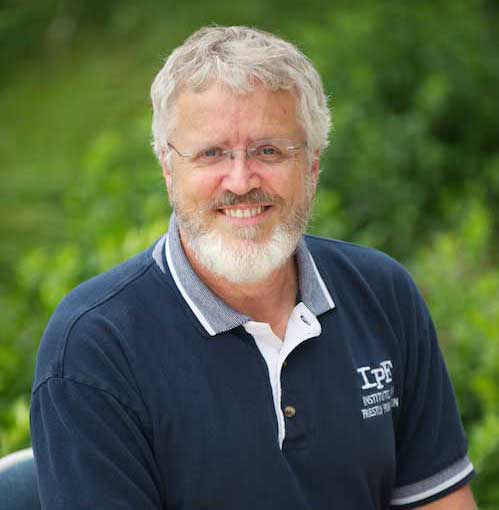
[powerpress]
As human beings, we have disordered desires. One of our greatest disordered desires, is to want things now, to be impatient, to want things through our own efforts, without waiting or co-operating with God’s will. To wait and cooperate with God’s will, is to unleash the wonderful character trait of trust. To entrust all of our desires, and all that we wish would be fulfilled into the person of Jesus Christ, whose only desire is our goodness, our happiness, our holiness. This Advent, let’s trust that God is thinking about us all the time, and moving creation in such a way that all that is good will be given to us. Let us ask him to heal our desire to want things now. And to renew within us the desire to want only holiness, to want only what God wants for us, for he knows what is best.
Deacon James Keating, PhD, the director of Theological Formation for the Institute for Priestly Formation, located at Creighton University, in Omaha, is making available to “Discerning Hearts†and all who listen, his series of programs entitled “The Heart of Hopeâ€.
For more information on the “Institute of Priestly Formation†and for other material available by Deacon Keating, just click here
Don’t forget to pickup a copy of “Communion with Christ†, it is one of the best audio sets on prayer…ever!
This entry was posted on Friday, December 5th, 2014 at 8:44 am
You can follow any responses to this entry through the RSS 2.0 feed.
[powerpress]
Please visit the Discerning Hearts Our Lady of Guadalupe page for the text and audio for the remaining days.
Day Three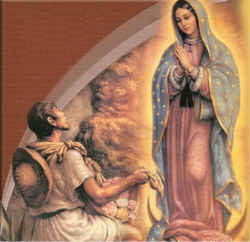
Mother of God, your ribboned sash identified you as a pregnant woman, a woman who bore the Christ Child to a world in darkness and who through two millennia has borne the light and love of Christ to a world that has largely rejected Him. May the love of your Son awaken a hymn of thanksgiving and praise in all pregnant mothers, as happened long ago in the home of Elizabeth and Zechariah.
Our Father … Hail Mary … Glory be …
Tags: catholic, catholic podcast, catholic prayer, cathollc spirituality
This entry was posted on Friday, December 5th, 2014 at 6:37 am
You can follow any responses to this entry through the RSS 2.0 feed.
[powerpress]
O God,
who by the Immaculate Conception
of the Blessed Virgin Mary,
did prepare a worthy dwelling place for Your Son,
we beseech You that,
as by the foreseen death of this, Your Son,
You did preserve Her from all stain,
so too You would permit us,
purified through Her intercession,
to come unto You.
Through the same Lord Jesus Christ,
Your Son, who lives and reigns with You
in the unity of the Holy Spirit,
God, world without end.
Amen.
Glorious and immortal Queen of Heaven,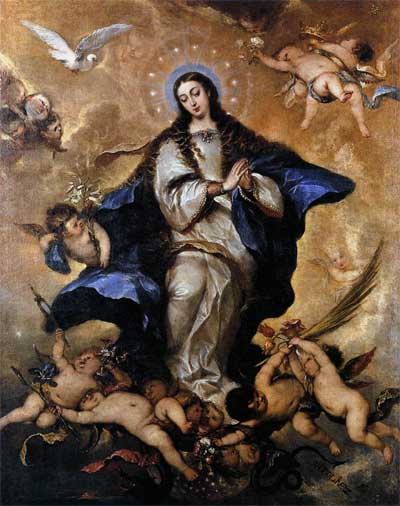
we profess our firm belief in your Immaculate Conception
preordained for you in the merits of your Divine Son.
We rejoice with you in your Immaculate Conception.
To the one ever-reigning God,
Father, Son, and Holy Spirit,
three in one Person,
one in nature,
we offer thanks for your blessed Immaculate Conception.
O Mother of the Word mad Flesh,
listen to our petition as we ask
this special grace during this novena…
(State your intention here…)
O Mary of the Immaculate Conception,
Mother of Christ,
you had influence with your Divine Son while upon this earth;
you have the same influence now in heaven.
Pray for us
and obtain for us from him
the granting of my petition if it be the Divine Will.
Amen.
For the complete 9 day novena visit the Discerning Hearts:
The Immaculate Conception Novena page
This entry was posted on Friday, December 5th, 2014 at 12:37 am
You can follow any responses to this entry through the RSS 2.0 feed.
Episode 33- The Holy Rule of St. Benedict: A Spiritual Path for Today’s World with Fr. Mauritius Wilde O.S.B., 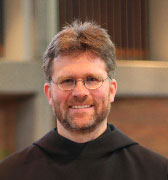 PhD.
PhD.
“The Life of St. Benedict pt 6”
We continue our conversation on the life of St. Benedict by using the biography penned by St. Gregory the Great.  In this episode St. Benedict deals with serious temptation.  If God calls you to restrain from something for the sake of His Kingdom, for the greater Love, this can include suffering and tension. We often try to avoid that.  St. Benedict desires to  be free and detached.  So Benedict takes action in order to be open to  grace and the love of God.   His method in this story may seem archaic to some, but it shouldn’t stop us from examining how we deal with temptation.
[powerpress]
From the Life of Our Most Holy Father St. Benedict by St. Gregory the Great:
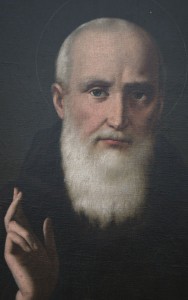
 CHAPTER I.
The holy man being on a certain day alone, the tempter was at hand; for a little black bird, commonly called an ousel, began to fly about his face, and that so near as the holy man, if he would. might have taken it with his hand; but no sooner had he made the sign of the cross than the bird vanished. When presently so great a carnal temptation assailed him, that before the holy man had never felt the like. For the remembrance of a woman which some time he had seen, was so lively represented to his fancy by the wicked spirit, and so vehemently did her image inflame his breast with lustful desires, that almost overcome by pleasure, he was determining to leave the wilderness. But suddenly assisted with divine
grace he came to himself, and, seeing near him a thicket full of nettles and briars, he threw off his garments and cast himself naked into the midst of those sharp thorns and nettles, where he rolled himself so long, that, when he rose up, all his body was pitifully rent; thus by the wounds of his flesh he cured those of his soul, by turning pleasure into pain; and by the vehemence of outward torments he extinguished the unlawful flame which burnt within overcoming sin by changing the fire. After which time, as he himself related to his disciples, he was so free from the like temptation, that he never felt any such motion.
 For more information about the ministry of the the Missionary Benedictines of Christ the King Priory in Schuyler, Nebraska visit here:
For more information about the ministry of the the Missionary Benedictines of Christ the King Priory in Schuyler, Nebraska visit here:
This entry was posted on Thursday, December 4th, 2014 at 1:30 pm
You can follow any responses to this entry through the RSS 2.0 feed.
Dr. Matthew Bunson discusses the life, times and teachings of St. John Damascene pt 1
-
Born: 676 AD, Damascus, Syria
-
Died: December 4, 749 AD, Mar Saba, Jordan
From Vatican.va, an excerpt from the teachings of Pope Benedict XVI General Audience 2008
Today I should like to speak about John Damascene, a personage of prime importance in the history of Byzantine Theology, a great Doctor in the history of the Universal Church. Above all he was an eyewitness of the passage from the Greek and Syrian Christian cultures shared by the Eastern part of the Byzantine Empire, to the Islamic culture, which spread through its military conquests in the territory commonly known as the Middle or Near East. John, born into a wealthy Christian family, at an early age assumed the role, perhaps already held by his father, of Treasurer of the Caliphate. Very soon, however, dissatisfied with life at court, he decided on a monastic life, and entered the monastery of Mar Saba, near Jerusalem. This was around the year 700. He never again left the monastery, but dedicated all his energy to ascesis and literary work, not disdaining a certain amount of pastoral activity, as is shown by his numerous homilies. His liturgical commemoration is on the 4 December. Pope Leo XIII proclaimed him Doctor of the Universal Church in 1890.
In the East, his best remembered works are the three Discourses against those who calumniate
which were condemned after his death by the iconoclastic Council of Hieria (754). These discourses, however, were also the fundamental grounds for his rehabilitation and canonization on the part of the Orthodox Fathers summoned to the Council of Nicaea (787), the Seventh Ecumenical Council. In these texts it is possible to trace the first important theological attempts to legitimise the veneration of sacred images, relating them to the mystery of the Incarnation of the Son of God in the womb of the Virgin Mary.
John Damascene was also among the first to distinguish, in the cult, both public and private, of the Christians, between worship (latreia), and veneration (proskynesis): the first can only be offered to God, spiritual above all else, the second, on the other hand, can make use of an image to address the one whom the image represents. Obviously the Saint can in no way be identified with the material of which the icon is composed. This distinction was immediately seen to be very important in finding an answer in Christian terms to those who considered universal and eternal the strict Old Testament prohibition against the use of cult images. This was also a matter of great debate in the Islamic world, which accepts the Jewish tradition of the total exclusion of cult images. Christians, on the other hand, in this context, have discussed the problem and found a justification for the veneration of images. John Damascene writes, “In other ages God had not been represented in images, being incorporate and faceless. But since God has now been seen in the flesh, and lived among men, I represent that part of God which is visible. I do not venerate matter, but the Creator of matter, who became matter for my sake and deigned to live in matter and bring about my salvation through matter. I will not cease therefore to venerate that matter through which my salvation was achieved. But I do not venerate it in absolute terms as God! How could that which, from non-existence, has been given existence, be God?… But I also venerate and respect all the rest of matter which has brought me salvation, since it is full of energy and Holy graces. Is not the wood of the Cross, three times blessed, matter?… And the ink, and the most Holy Book of the Gospels, are they not matter? The redeeming altar which dispenses the Bread of life, is it not matter?… And, before all else, are not the flesh and blood of Our Lord matter? Either we must suppress the sacred nature of all these things, or we must concede to the tradition of the Church the veneration of the images of God and that of the friends of God who are sanctified by the name they bear, and for this reason are possessed by the grace of the Holy Spirit. Do not, therefore, offend matter: it is not contemptible, because nothing that God has made is contemptible” (cf. Contra imaginum calumniatores, I, 16, ed. Kotter, pp. 89-90). We see that as a result of the Incarnation, matter is seen to have become divine, is seen as the habitation of God. It is a new vision of the world and of material reality. God became flesh and flesh became truly the habitation of God, whose glory shines in the human Face of Christ. Thus the arguments of the Doctor of the East are still extremely relevant today, considering the very great dignity that matter has acquired through the Incarnation, capable of becoming, through faith, a sign and a sacrament, efficacious in the meeting of man with God. John Damascene remains, therefore, a privileged witness of the cult of icons, which would come to be one of the most distinctive aspects of Eastern spirituality up to the present day. It is, however, a form of cult which belongs simply to the Christian faith, to the faith in that God who became flesh and was made visible. The teaching of Saint John Damascene thus finds its place in the tradition of the universal Church, whose sacramental doctrine foresees that material elements taken from nature can become vehicles of grace by virtue of the invocation (epiclesis) of the Holy Spirit, accompanied by the confession of the true faith.
For more visit Vatican.va
Dr. Matthew Bunson, Senior Fellow of the St. Paul Center for Biblical Theology, is one of the United States’ leading authorities on the papacy and the Church.
His books include: The Encyclopedia of Catholic History; The Encyclopedia of Saints; Papal Wisdom; All Shall Be Well; Encyclopedia of the Roman Empire; and The Angelic Doctor: The Life and World of St. Thomas Aquinas; The Pope Encyclopedia; We Have a Pope! Benedict XVI, the first Catholic biography of the Holy Father in the English language; the Encyclopedia of U.S. Catholic History; Pope Francis. His also the editor of OSV’s “The Catholic Answer” magazine.
Tags: John Damascene, matthew bunson
This entry was posted on Thursday, December 4th, 2014 at 12:41 pm
You can follow any responses to this entry through the RSS 2.0 feed.
[powerpress]
O God,
who by the Immaculate Conception
of the Blessed Virgin Mary,
did prepare a worthy dwelling place for Your Son,
we beseech You that,
as by the foreseen death of this, Your Son,
You did preserve Her from all stain,
so too You would permit us,
purified through Her intercession,
to come unto You.
Through the same Lord Jesus Christ,
Your Son, who lives and reigns with You
in the unity of the Holy Spirit,
God, world without end.
Amen.
Glorious and immortal Queen of Heaven,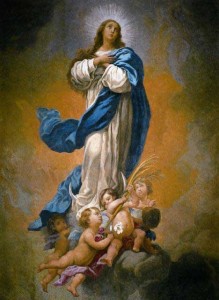
we profess our firm belief in your Immaculate Conception
preordained for you in the merits of your Divine Son.
We rejoice with you in your Immaculate Conception.
To the one ever-reigning God,
Father, Son, and Holy Spirit,
three in one Person,
one in nature,
we offer thanks for your blessed Immaculate Conception.
O Mother of the Word mad Flesh,
listen to our petition as we ask
this special grace during this novena…
(State your intention here…)
O Mary of the Immaculate Conception,
Mother of Christ,
you had influence with your Divine Son while upon this earth;
you have the same influence now in heaven.
Pray for us
and obtain for us from him
the granting of my petition if it be the Divine Will.
Amen.
For the complete 9 day novena visit the Discerning Hearts:
The Immaculate Conception Novena page
This entry was posted on Thursday, December 4th, 2014 at 9:22 am
You can follow any responses to this entry through the RSS 2.0 feed.
What is old is new again. That’s why the Fathers are so important, they’ve done battle with the heresies that continue to plaque our Church even today. Also in his writings you can see the “Theology of the Body”…1800 years or so before we hear from Pope John Paul II. Faith and Reason can live in harmony…then knew it then and we can be confident about that now.
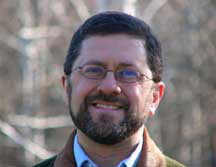 Take a listen to Mike Aquilna, who does a great job giving us the life of this early, early father of the Church, Clement of Alexandria.
Take a listen to Mike Aquilna, who does a great job giving us the life of this early, early father of the Church, Clement of Alexandria.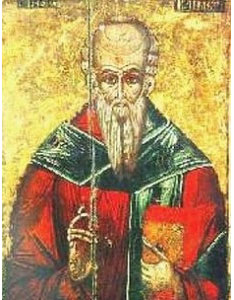
[powerpress]
Here in a very small nutshell is an overview of St. Clement of Alexandria –
from wikipedia –
Titus Flavius Clemens (c.150 – c. 215), known as Clement of Alexandria (to distinguish him from Clement of Rome), was a Christian theologian and the head of the noted Catechetical School of Alexandria. Clement is best remembered as the teacher of Origen. He united Greek philosophical traditions with Christian doctrine and valued gnosis that with communion for all people could be held by common Christians specially chosen by God.Though he constantly opposes the concept of gnosis as defined by the Gnostics, he used the term “gnostic” for Christians who had attained the deeper teaching of the Logos.He developed a Christian Platonism. He presented the goal of Christian life as deification, identified both as Platonism’s assimilation into God and the biblical imitation of God.
Like Origen, he arose from Alexandria’s Catechetical School and was well versed in pagan literature.Origen succeeded Clement as head of the school.Alexandria had a major Christian community in early Christianity, noted for its scholarship and its high-quality copies of Scripture.
Clement is counted as one of the early Church Fathers. He advocated a vegetarian diet and claimed that the apostles Peter, Matthew, and James the Just were vegetarians. – wikipedia
Great trilogy of St. Clement of Alexandria
The trilogy into which Clement’s principal remains are connected by their purpose and mode of treatment is composed of:
- the Protrepticus (“Exhortation to the Greeks”)
- the Paedagogus (“Instructor”)
- the Stromata (“Miscellanies”)
The first book deals with the religious basis of Christian morality, the second and third with the individual cases of conduct.
Tags: alexanderia, Church, clement of alexandria, early church fathers, faith and reason, father, father of the church, fathers mike, fathers of the church, gnostics, heresy, mike aquilina, Mike Aquilna
This entry was posted on Thursday, December 4th, 2014 at 8:26 am
You can follow any responses to this entry through the RSS 2.0 feed.
[powerpress]
A commentary on the Diatessaron by St Ephrem
Keep watch: He is to come again
To prevent his disciples from asking the time of his coming, Christ said: About that hour no one knows, neither the angels nor the Son. It is not for you to know times or moments. He has kept those things hidden so that we may keep watch, each of us thinking that he will come in our own day. If he had revealed the time of his coming, his coming would have lost its savour: it would no longer be an object of yearning for the nations and the age in which it will be revealed. He promised that he would come but did not say when he would come, and so all generations and ages await him eagerly.
Though the Lord has established the signs of his coming, the time of their fulfilment has not been plainly revealed. These signs have come and gone with a multiplicity of change; more than that, they are still present. His final coming is like his first. As holy men and prophets waited for him, thinking that he would reveal himself in their own day, so today each of the faithful longs to welcome him in his own day, because Christ has not made plain the day of his coming.
He has not made it plain for this reason especially, that no one may think that he whose power and dominion rule all numbers and times is ruled by fate and time. He described the signs of his coming; how could what he has himself decided be hidden from him? Therefore, he used these words to increase respect for the signs of his coming, so that from that day forward all generations and ages might think that he would come again in their own day.
Keep watch; when the body is asleep nature takes control of us, and what is done is not done by our will but by force, by the impulse of nature. When deep listlessness takes possession of the soul, for example, faint-heartedness or melancholy, the enemy overpowers it and makes it do what it does not will. The force of nature, the enemy of the soul, is in control.When the Lord commanded us to be vigilant, he meant vigilance in both parts of man: in the body, against the tendency to sleep; in the soul, against lethargy and timidity. As Scripture says: Wake up, you just, and I have risen, and am still with you; and again, Do not lose heart. Therefore, having this ministry, we do not lose heart.
Excerpts from the English translation of The Liturgy of the Hours (Four Volumes) © 1974, International Commission on English in the Liturgy Corporation. All rights reserved.
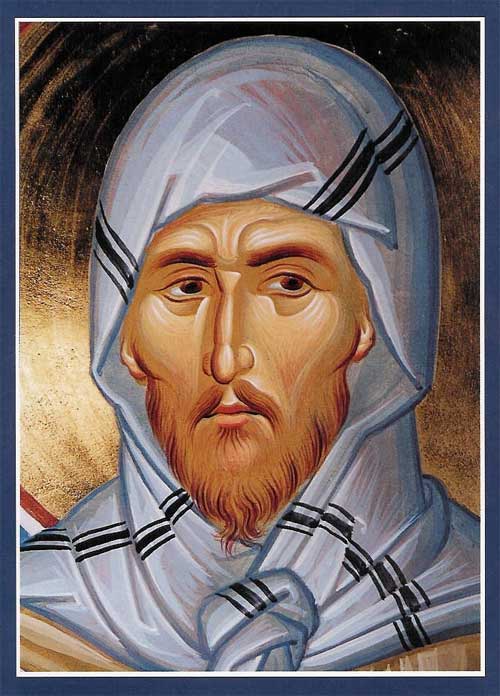
This entry was posted on Thursday, December 4th, 2014 at 1:51 am
You can follow any responses to this entry through the RSS 2.0 feed.
[powerpress]
From The Statement of Faith by St. John Damascene, priest
You have called me, Lord, to minister to your people
O Lord, you led me from my father’s loins and formed me in my mother’s womb. You brought me, a naked babe, into the light of day, for nature’s laws always obey your commands.
By the blessing of the Holy Spirit, you prepared my creation and my existence, not because man willed it or flesh desired it, but by your ineffable grace. The birth you prepared for me was such that it surpassed the laws of our nature. You sent me forth into the light by adopting me as your son and you enrolled me among the children of your holy and spotless Church.
You nursed me with the spiritual milk of your divine utterances. You kept me alive with the solid food of the body of Jesus Christ, your only-begotten Son for our redemption. And he undertook the task willingly and did not shrink from it. Indeed, he applied himself to it as though destined for sacrifice, like an innocent lamb. Although he was God, he became man, and in his human will, became obedient to you, God his Father, unto death, even death on a cross.
In this way you have humbled yourself, Christ my God, so that you might carry me, your stray sheep, on your shoulders. You let me graze in green pastures, refreshing me with the waters of orthodox teaching at the hands of your shepherds. You pastured these shepherds, and now they in turn tend your chosen and special flock. Now you have called me, Lord, by the hand of your bishop to minister to your people. I do not know why you have done so, for you alone know that. Lord, lighten the heavy burden of the sins through which I have seriously transgressed. Purify my mind and heart. Like a shining lamp, lead me along the straight path. When I open my mouth, tell me what I should say. By the fiery tongue of your Spirit make my own tongue ready. Stay with me always and keep me in your sight.
Lead me to pastures, Lord, and graze there with me. Do not let my heart lean either to the right or to the left, but let your good Spirit guide me along the straight path. Whatever I do, let it be in accordance with your will, now until the end.
And you, O Church, are a most excellent assembly, the noble summit of perfect purity, whose assistance comes from God. You in whom God lives, receive from us an exposition of the faith that is free from error, to strengthen the Church, just as our Fathers handed it down to us.
Excerpts from the English translation of The Liturgy of the Hours (Four Volumes) © 1974, International Commission on English in the Liturgy Corporation. All rights reserved.
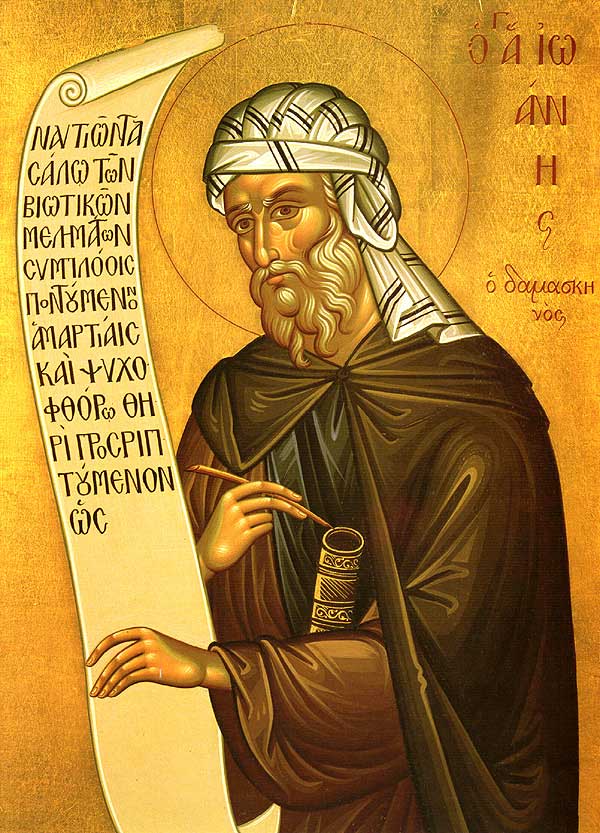
This entry was posted on Thursday, December 4th, 2014 at 12:44 am
You can follow any responses to this entry through the RSS 2.0 feed.
[powerpress]
Please visit the Discerning Hearts Our Lady of Guadalupe page for the text and audio for the remaining days.
Day Two
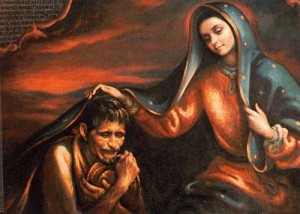 Mary, Mother of divine grace, you appeared to Juan
Mary, Mother of divine grace, you appeared to Juan
Diego standing on the moon and robed in a royal mantle adorned with stars, showing that you are the Queen of Heaven and Earth, yet far from a haughty or distant Queen. With hands folded in supplication, eyes cast downward in humility and compassion, you did not ask for a temple where you could be honored, but one where you could attend to the “weeping and sorrows of … all the people of this land, and of the various peoples who  love me….†May all who are sorrowing due to abuse, violence, exploitation, neglect, and all sins against the dignity of life, fly to you, Mother, for comfort and hope.
Our Father … Hail Mary … Glory be …
Tags: catholic, catholic podcast, catholic prayer, cathollc spirituality, Mother of divine grace, Queen of Heaven and Earth
This entry was posted on Thursday, December 4th, 2014 at 12:05 am
You can follow any responses to this entry through the RSS 2.0 feed.

